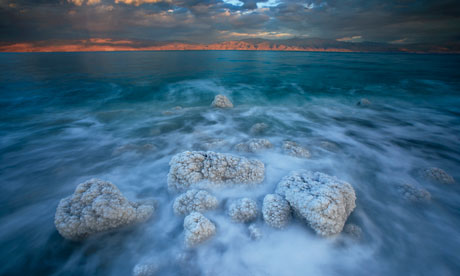
Salt defines us as a species. We are hard wired not just to want salt, but to need it, to adore it, to view it with something akin to lust. Just as we developed cattle and crops to advance from caves and savannas to villages and cities, salt is entwined with our evolution. Salt's diversity is a crystalline reflection of the world's geography, culture, and technology. Virtually every society in human history that could make salt, did. It is essential as a seasoning, a preservative and a nutrient. Those without the resources or skill to make salt needed to trade for it.
And it might not be that bad for us, after all. A new major study of 3,681 people published last week in the Journal of the American Medical Association has again seriously undermined the prevailing attitude among media and public health officials. It found no correlation between moderate salt intake and hypertension.
As the most potent flavour enhancer, salt is also among the weirdest and most unpredictable of all the world's foods. Salt can be blue, green, grey, silver, white, rose, red, orange or purple. It can be monolithic or fractured. Salt crystals come in huge blocks and in microscopic fronds. Shapes range from pyramids to flakes to clumps to cubes; in the instance of a rare African salt from Lake Assal called Djibouti Boule, they even form naturally into near-perfect spheres the size of golf balls. Salt crystallisation seems intent on going rogue, bent on disproving the laws of physics and human expectations.
Salting, the simple act of adding salt to food, is so ancient, varied and essential that we have been lulled into believing we know how to do it, but most often, we don't. Salting is an opportunity. What do you want salt to do for your dish? Do you want the salt to spark and vanish or persist and penetrate? Do you want to build a crescendo or diminuendo of flavour? What textures do you want: a quick snap, a voluptuous crackle, a barely perceptible crunch? How prominent a role do you want to allot to it: do you wish to hear only the voices of the other ingredients, or can salt chime in as a chorus, or even grab the microphone for a verse?
It is right and proper to use as much salt as you want so long as you are the one salting your food. There are thousands of salts in the world, and there is no reason not to explore as many as inspire you. On the other hand, salting effectively can be achieved with the simplest of resources: A fleur de sel for finishing fine foods, a flake salt for snappy contrast on fresh vegetables, and a sel gris for everything else. Finishing with salt rather than salting your food during cooking is one of the most effective ways we have of playing sensually with what we eat. It brings food, salt and your palate into the most intimate possible contact. When salt is allowed to play a finishing role in the dish, the relationship of salt and food evolves with every bite. As you eat, food and salt combine – first a flash of salt ... then the food ... a flicker of salt ... now fuller food flavours ... then a faint spark of salt catching at the complex afterglow of the food. The rewards: increased intensity and complexity of flavour, surprising textures, unexpected aromas and a heightened awareness of the process of tasting food.
I believe salt awakens us to our senses and our instincts like no other edible substance. It also connects us to our environment and our traditions. Appreciating salt and using it well begins with a glimpse at the cultural and economic centrality of this essential mineral:
• Salt is the most important ingredient in cooking and the most powerful tool for improving the flavour of food.
• No two salts are the same, any more than any two people, or cultures, or geographies are the same.
• Some things do not belong in our food supply. Industrial salts like cheap sea salt, kosher salt and table salt are products that few people want in their kitchens once they understand and face up to how these products are made.
• There is no equating industrial salt with artisan salt. Artisan salts are food. Industrial salts are chemicals.
• Buying good salt can change the world by supporting traditional economies that preserve ecologically and culturally valuable resources.
Bring honour to your food. Buy a salt you can respect. Then, respect your salt.

